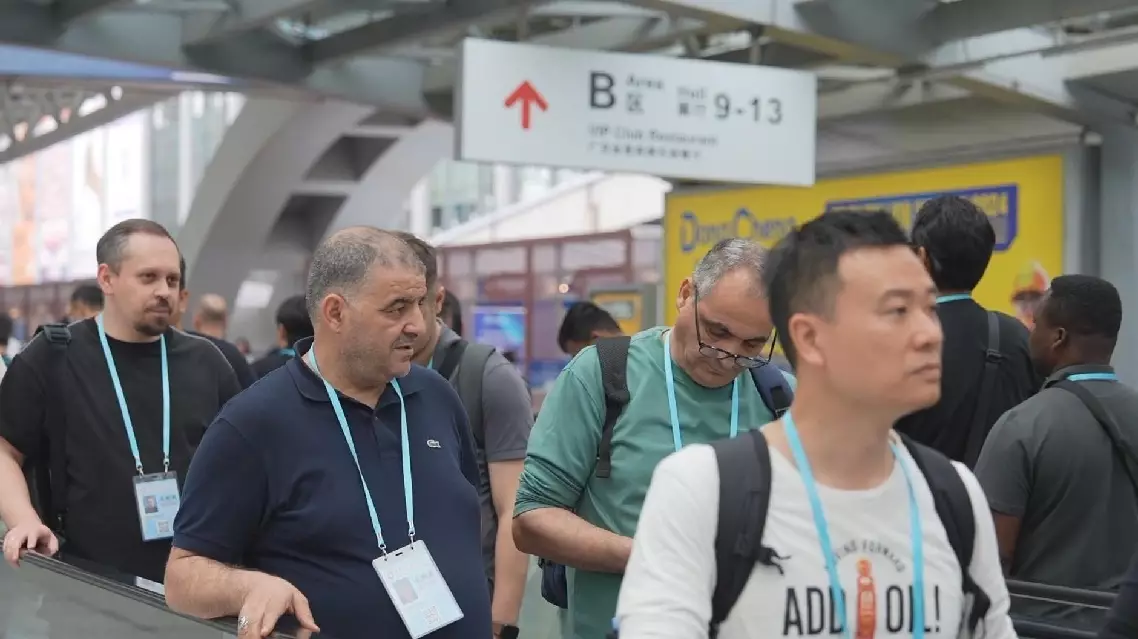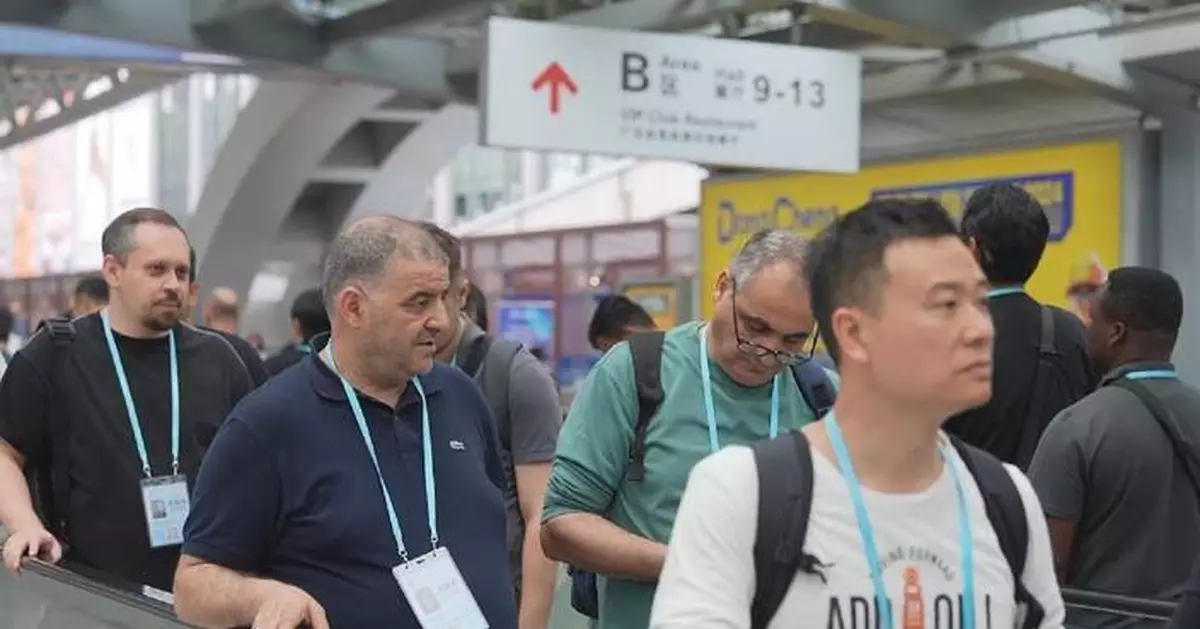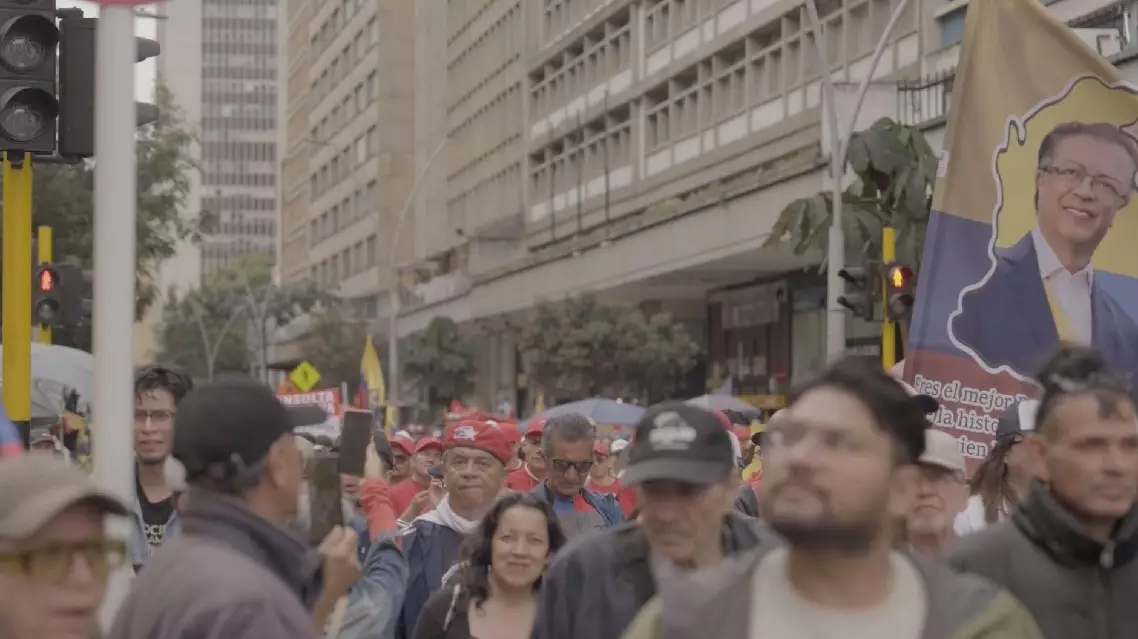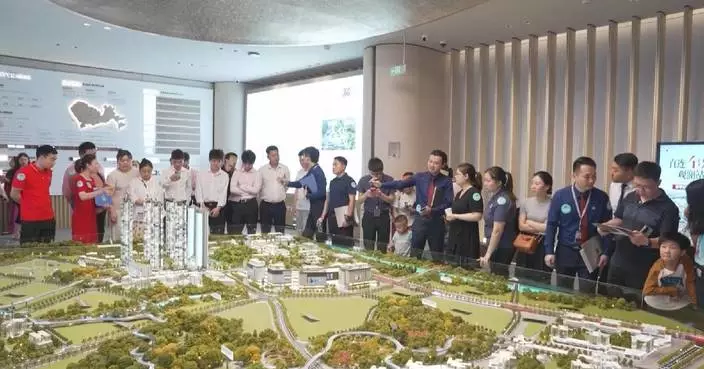Record turnout at the 137th Canton Fair has demonstrated that China's export sector remains resilient amid rising U.S. tariffs, reflecting the ongoing vibrancy of trade.
The China Import and Export Fair, also known as the Canton Fair, kicked off on Tuesday with the number of export exhibitors exceeding 30,000 for the first time in the history of the world-famous event.
While trade tensions between China and the U.S. continue to intensify, the White House has recently raised tariffs on Chinese goods to as much as 245 percent. Nonetheless, business at the Canton Fair is bustling. Over 200,000 overseas buyers have signed up for the spring session, demonstrating that trade remains very much alive.
Still, many Chinese manufacturers are feeling the strain of the U.S. tariffs, with some halting shipments to the U.S. and others restructuring their supply chains.
"We're still watching to see what changes might come. We're exploring whether products with relatively simple supply chains can be quickly assembled in Thailand or Türkiye," said Chen Mingjun, general manager of Powtek Corporation, a supplier of industrial electric appliances.
"Sales to the U.S. market account for about 20 percent of our overall volume. At the moment, we've suspended all production and shipments of products destined for the U.S. I believe most of our US clients are also adjusting their sales strategies," said Zou Yuhua, director of Foreign Trade Department of Xingxing Refrigeration, headquartered in Jiangsu Province.
In response to the tariff pressures, many Chinese exporters are diversifying their markets and exploring new opportunities.
"We're taking a two-pronged approach: on one hand, focusing on domestic sales and continuing to expand in the local market; on the other hand, for exports, we're working to grow in markets outside the U.S.," said Wallace Huang, an export department director of Weking, a leading Chinese manufacturer in the small appliance industry.
Global buyers are also adjusting to the new realities. While U.S. retailers are in talks with Chinese manufacturers to find short-term workarounds, others are re-evaluating their sourcing strategies amid rising costs.
"These tariffs are bringing a lot of uncertainty in the Canadian market. And with uncertainty, a lot of consumers are afraid to spend, and we're feeling it," said Giorgio de Domenico, a buyer from Canada.
"So I just talked with the U.S. major retailer. Most, like 70 to 90 percent, of their stuff are made in China. In the future, probably four weeks or eight weeks later, they will add retail price to the consumer side. That's the only thing they can do. Second, they want us to try to get the stuff outside of China as soon as possible [to avoid tariffs]" said Li Feng, senior vice president of Hangzhou GreatStar Industrial.
Despite the economic challenges, full decoupling between China and the U.S. seems unlikely for now. Many buyers and suppliers are committed to their long-standing partnerships, even as tariffs increase costs.
Anson Ng, general manager of Bohao International Logistics, emphasized the continued demand for Chinese products.
"We are a logistic company, mainly running the shipment from China to the USA. Some clients told me that they are still buying from China as their products can only [be] produced [in] China. And also maybe for some products from China, the quality is better than if they buy from other countries, so there is no other choice. Even if they pay more, they have to ship them out," he said.
Despite uncertainty, many Chinese manufacturers remain optimistic, placing their confidence in quality, innovation, and their ability to weather the storm.
The trade fair is scheduled to run until May 5.

China's resilient export sector on full display at Canton Fair despite rising US tariffs




















































